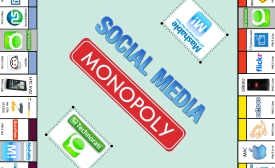digital diplomacy

This article analyzes the effects and impact of new media technologies on traditional public diplomacy practices through the lens of the U.S. Embassy in China's use of the micro-blogging platform Weibo.
The ABC has partnered with a Chinese media company to open a web portal for Australian content in that country, becoming the first mainstream media organisation to launch a registered web portal in China. The managing director of the ABC, Mark Scott, and its chairman, Jim Spigelman, opened the portal in China on Wednesday and were congratulated by Tony Abbottfor strengthening Australia’s ties with China.
Earlier this year, Microsoft announced a $1 million donation to assist in the development of a high-tech interactive exhibit at the United States Diplomacy Center (USDC). The Department of State will provide the space, staff, and security for the museum, which is intended to honor the history and significance of diplomacy in America.

As Mexico prepares to vote this weekend, take a look back at CPD's interview with former Mexican Ambassador to the United States.
When it comes to a few important journalistic new media skills, such as speed of posting information online and use of social media, U.S. State Department's public diplomacy is leagues ahead of U.S. taxpayer-funded Voice of America (VOA).
In ways big and small, life without access to financial services is more difficult, expensive and dangerous. It constrains a woman’s ability to plan for her family’s future. At the community level, it traps households in cycles of poverty. More broadly, it limits the economic growth potential of developing countries.
While American negotiators maintained tight secrecy at the nuclear talks here, President Hassan Rouhani of Iran took to Twitter late Thursday to describe a letter he sent to President Obama and other world leaders justifying Iran’s positions.







